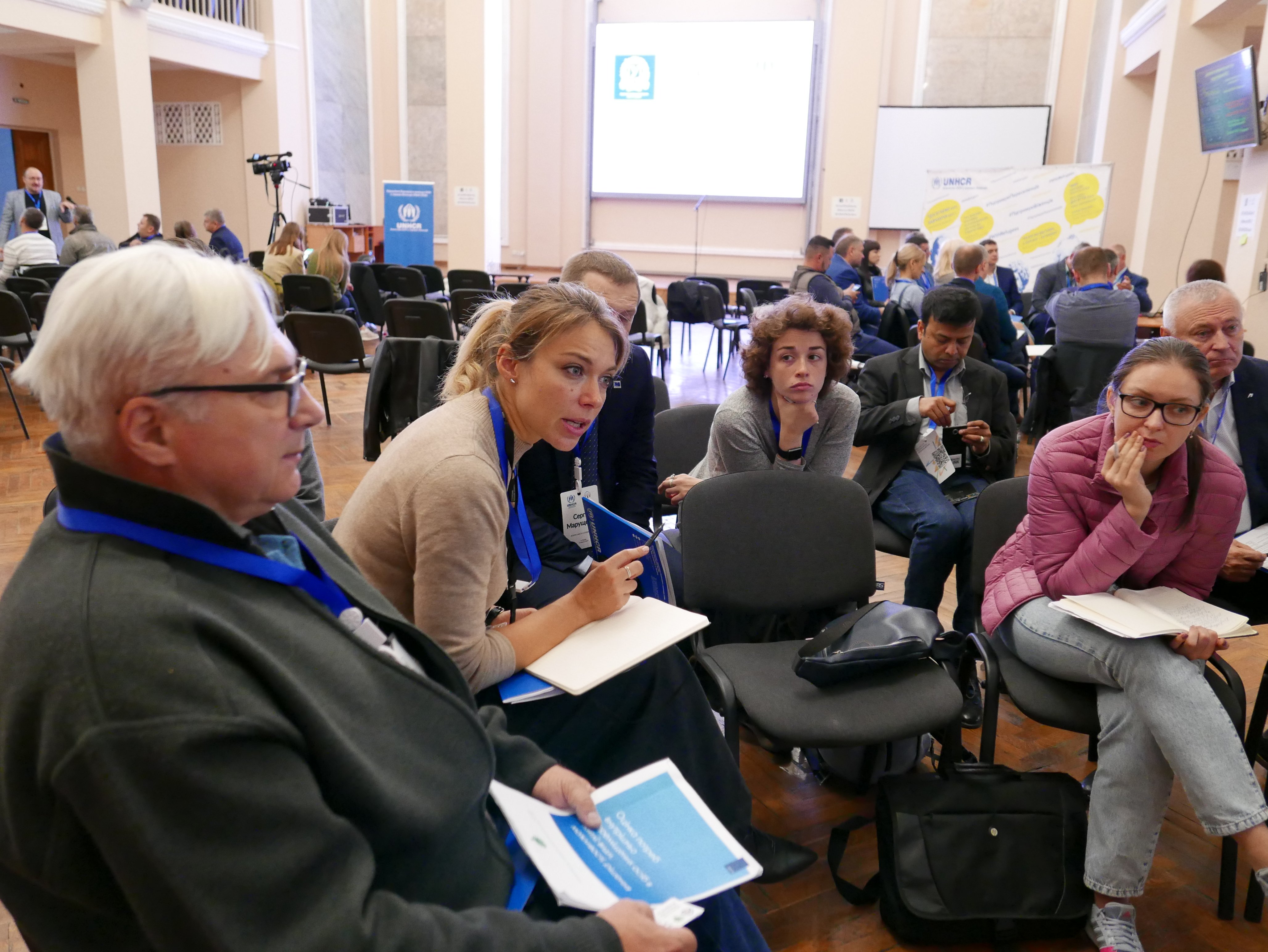Cities of Solidarity Forum took place in Kharkiv

Cities of Solidarity Forum took place in Kharkiv
“When the armed conflict caused first waves of internal displacement in 2014, the issue of accommodation was resolved spontaneously by IDPs. Some of them stayed at relatives, some rented an apartment. Some were placed in hostels, hotels, sanatoriums. International partners have established several modular towns. Majority of IDPs thought this situation will not last long and soon they will be able to return home. But by the sixth year of the displacement, it becomes clear that most people need permanent solutions,” - said Noel Calhoun, UNHCR Deputy Representative in Ukraine.

"Most IDPs during the nationwide survey we conducted in 2019 said that housing was one of their most pressing issues ," added Noel Calhoun. - There are currently several tools at the national level to address this issue, such as “Affordable Housing” or “Private House” in the villages, but they are not able to cover all the needs, so many local initiatives are being launched by individual cities and communities. During the Forum, participants exchanged information on such initiatives and worked out recommendations for the government and other stakeholders to further improve opportunities for IDPs to solve their housing problems”.
The developed recommendations mainly relate to systematizing of the planning and budgeting of the state and local housing programs for IDPs, in particular through the “Affordable Housing" or the “Private House" projects, but also for the improvement of hostel conditions, restoration of social housing objects through joint programs with international donors, creation of revolving funds and leasing programs. Participants also spoke about the creation of cooperatives, cooperation with international organizations, the combined housing and employment programs, cooperation with construction companies, the use of reserved funds or regional development programs, resettlement of residents of places of compact residence and more. Organizers will prepare recommendations for publication and distribution by the end of October 2019.
Ivan Parukh, Deputy chairman of the State Fund for Support of Youth Housing Construction, said that since 2017, 324 families of internally displaced persons have become participants in state programs. “Thanks to the public and with the support of international organizations, we have been able to adapt a number of programs to the needs of IDPs. In particular, this category of citizens has the opportunity to participate in the Affordable Housing program and receive 50% irrevocable compensation for the cost of housing from the state, while in the program of crediting from the capital of the State Youth Fund internally displaced persons have the first priority right to receive a loan. State Youth Program together with state housing programs implements 117 regional programs, 23 of which are programs providing housing for IDPs.”

As of the end of September, over 1.4 million IDPs were registered in Ukraine. Although a nationwide assessment of IDPs' housing needs has not been conducted, there are public initiatives to evaluate such needs. Recently, a Coalition of IDPs of Southern Ukraine conducted a survey of 400 displaced persons in the Odessa region. Results reveal that the vast majority - 77% of IDPs interviewed in the Odessa region live in rented apartments or houses, about 10% - in collective centers, 9% - with relatives/acquaintances and only 3% have purchased their own housing. At the same time, 57% of IDPs do not plan to return home after the conflict is over, and 85% do not plan to do so in the coming year. 79.5% of respondents do not have the prospect of obtaining housing on their own, partially due to the fact that the average monthly income of IDP families is very low, up to 600 USD where the average cost of rented housing in Odessa starts at 200 USD.















